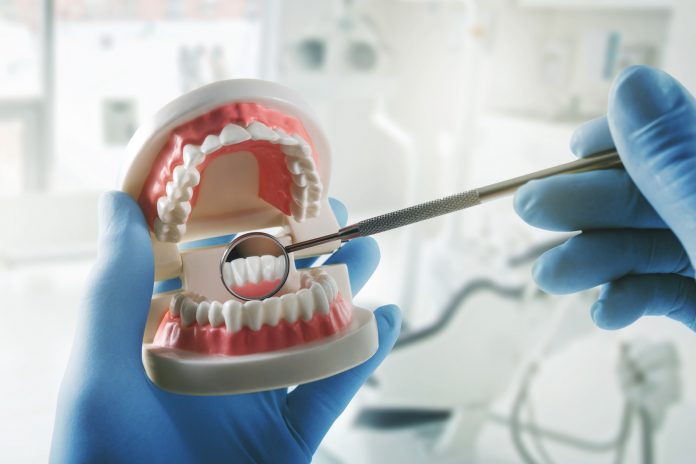Karlo Jacutan, on behalf of Dental Arch, comments on the importance of promoting oral health among populations during the COVID-19 pandemic and restorative dentistry
The importance of continuing the promotion of oral health should be a high priority. It should be recognised that people, especially in stressful times like during the pandemic, are more likely to consume food that’s harmful to their teeth in order to tackle the problems triggered by COVID-19 (whether that’s stress, boredom, etc.)
Allowing further promotion for oral health, at the very least, reminds people to care for their oral health. With limited access to dental clinics due to national restrictions, people have less access to information regarding oral health standards, improvement and consultancy.
Issues for dentists and dentistry in Europe
Now that the UK has struck a no-deal Brexit, it’s important to note the role that the EU has had in relation to oral health in the UK.
The impact of Brexit towards oral healthcare seems to vary by region – with larger cities such as London and Manchester experiencing less significant effects, while smaller, rural areas are at a much higher risk of limited access to oral health equipment and resources (due to their reliance on the EU workforce, according to James Coughlan & Sam Shah (2020) written in the British Dental Journal). (1)
This means that access to medical necessities (e.g. anaesthetics, etc.) are in danger of short supply as a result of the Brexit no-trade deal made on 31st January 2020.
Dentistry safety during the current pandemic
Due to the fundamental importance of each individual’s oral health, dental offices were allowed to remain open, although with restricted access – which still limits patient visits.
However, in addition to restricted visits, additional preventive measures are also continually used in order to further minimise the risk of contamination.
BUPA Dental, for example, has taken the essential decision to implement these measures in order to prioritise patient care. These measures include pre-appointment setups, arrival etiquette, social distancing, mandatory masks (PPE) and maintained sanitisation.
Fortunately, these vital implementations apply to nearly all offices within the UK, which suggests that dental health offices and clinics are fundamentally safe – if the implementations are followed by members of the public.
The patient’s concerns attending dentists during a pandemic
The concerns of the public are usually already addressed by the current applications of PPE and COVID-based measures by dental clinics, as most of their serious concerns usually fall into the realm of catching the coronavirus.
With the usual dental practices taking place, it’s absolutely understandable that members of the public have worries when attending an appointment, having their mouths exposed can be highly dangerous during the pandemic.
Although these are usually addressed by the careful implementation of coronavirus prevention measures in most clinics within the UK. Which typically include deeper cleans of equipment and antibacterial applications for all equipment.
Dealing with delayed appointments since lockdown
An excessive number of appointments have either been delayed or cancelled following the barrier that the coronavirus has provided in all aspects of healthcare.
Limited visits have delayed so many appointments way down the year, with emergency-deemed dental appointments taking priority over others.
Like with other healthcare adaptations, consultancy-based appointments have also been moved to phone-by-phone consultations to further reduce risk. However, this has also meant a detrimental impact on those who cannot use online amenities to acquire a registered appointment with their local clinics.
It is evidently difficult to predict how these delayed appointments will be addressed in future time, as unfortunately, we are still unaware of when the virus will be controlled. The NHS is expected to implement a controlled system to ensure these appointments will not happen again in future time, however, it’s important to ensure that no more globally impactful events like this will happen again.
Restorative dentistry
Restorative dentistry is the practice of simply restoring missing or damaged teeth, and we bridge this gap by providing restorative options such as fillings, crowns, implants and so on. The main priority during this procedure is to reinstate the patient’s teeth, bringing back their natural smile, and prevent oral health problems.
The importance of restorative dentistry comes from allowing patients to gain their confidence back – as improperly structured or missing teeth can drastically affect one’s health and confidence.
COVID-19 and its effects on restorative dentistry
For restorative dental procedures, dental professionals are commonly required to be in close contact with their patient. With COVID-19, restorative procedures are now risking dental professionals as they expose themselves to cross-contamination via saliva and fluids.
With the introduction of various COVID-19 prevention practices, these procedures are now safe to conduct.
Cleanliness, for example, is doubled in application for all dental equipment, such as suction pumps – a necessary piece of equipment during restorative procedures, are not cleaned with chlorine-based disinfectant, ready for the next patient.
Types of restorative dentistry
Restorative options such as fillings typically use synthetic materials such as dental amalgam (usually composed of silver, copper, tin and other metallic elements to improve the appearance and mechanical properties of a patient’s tooth in a safe manner) and is usually the most common way to restore decaying teeth.
Crowns, on the other hand, utilise different types of biocompatible materials – which include porcelain fused to metal, gold and a new material called zirconium (a durable type of metal closely related to titanium), and this procedure is used to provide both strength and protection to the tooth structure.
Dental implants use similar materials as crowns, utilising both zirconium, as well as titanium, and are used to replace missing teeth.












I read your article its an excellent article thanks for sharing.